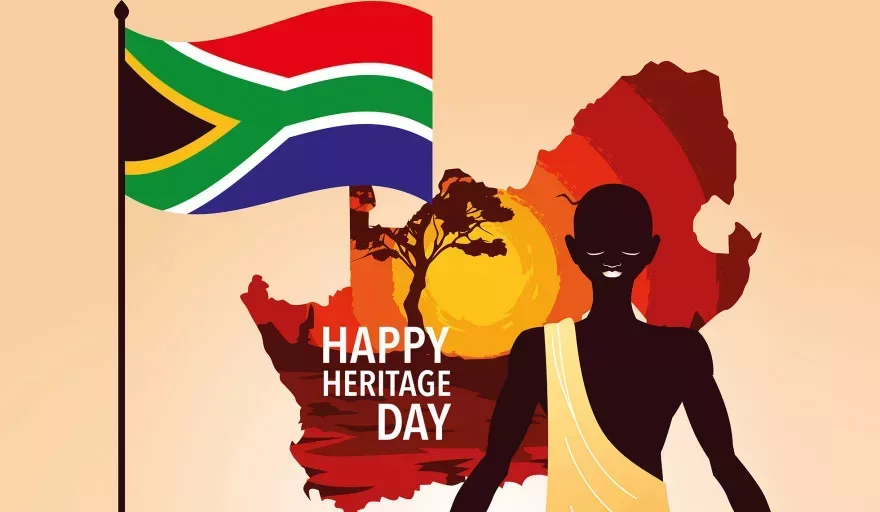Highlighting the commemoration of Heritage Day in the Rainbow Nation of South Africa, taking place annually on the 24th September.
Heritage, defined as ‘something handed down from the past, as a tradition’, is a key component of any national identity. For South Africa, this notion is distilled into an annual occasion of events, festivities, and social gatherings to celebrate the rich tapestry of South African culture and traditions.
An official public holiday, Heritage Day takes place every 24th September, and was first implemented in 1995 in honour of the country’s ‘intangible cultural heritage’, often referred to as its ‘living heritage’.
As the ‘Rainbow Nation’, South Africa is known for its wealth of diversity, uniting a vast array of nationalities under a single cultural umbrella. The country’s symbolic moniker was first coined by Archbishop Desmond Tutu in 1994, recognising the many customs, histories, and languages which call South Africa home.
To acknowledge the connotations of these cultural touchstones, the South African government instils a sense of participation amongst the population by establishing Heritage Day as an official public holiday. This is also reflected in the nation’s schools and institutions, where Heritage Day is championed as a catalyst for nation building.
Education is essential for preserving these traditions, as each new generation become imbued with the significance of their country’s culture. By providing this sense of social cohesion in children during their early stages of learning, a natural respect and appreciation of heritage begins to form, laying the foundations for racial and social barriers to be overcome.
The occasion is headed by the South African Department of Arts and Culture, who organise annual events pinned to a central theme. In 2013, a policy concerning living heritage was drafted, and this set the tone for the South African agenda to safeguard living heritage as a resource for future generations.
With commemorative events being held across South Africa, Heritage Day plays an essential role in fostering social cohesion, unifying the nation with celebration. The process of joining together in recognition of a country’s history and values allows for the dissemination and reinforcement of a shared identity.
Despite this, the question of whose heritage is being celebrated has been a source of controversy, especially within a country with eleven official languages. To overcome this point of contention, South Africans are encouraged to unite under their shared culture as a nation. Jan Scanenell suggested the ‘Braai4Heritage’ initiative, celebrating cultural common ground by gathering over a barbecue (the braai). This mainstay of Heritage Day celebrations also provided a stream of business for South Africa’s food and beverage retailers.
Alongside diversity, the day is about peace and reconciliation, laying past conflicts aside and providing a bedrock for social and economic development and preserving a bank of beliefs South Africans can fall back on when confronting challenges.
For South Africans everywhere, Heritage Day is a symbol of how far the country has come, having shed the dark veil of apartheid and political turmoil. United by this vision, the day is the ultimate reminder that together, we are stronger.






























